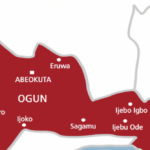
No matter an individual’s wealth of knowledge, he requires wisdom in order to be called a scholar. Whether political, socio-economic, intellectual, religious or cultural endeavor, wisdom is an indispensable factor in nearly every human activity. As a universal virtue, wisdom is a necessary requirement for sound scholarship, good leadership as well as functional social integration and cohesion.
A person who lacks wisdom pretends to know everything and therefore claims to have no need for additional search for knowledge. There is a story of a new bride who did not know how to cook. Although I once told the story on this page, it is still relevant to repeat it here again. The bride’s mother-in-law wanted to teach her but she was too proud to learn. Whatever her mother-in-law said, she immediately replied ‘I know’. When mother-in-law said, ‘for this quantity of rice, you need this much water’; the bride said, ‘I know’. ‘And you need this amount of salt’. The bride replied, ‘I know’. ‘And when the rice has reached such and such consistency, you must drain it’. The bride said, ‘I know’. The bride’s mother-in-law was well aware that she (the bride) could not cook properly but her pride would not let her learn.
In order to break this pride, the mother-in-law said, ‘When you’ve drained the rice, you must steam the rice with a sun-dried brick over the pot’. The bride, as usual said, ‘I know that too’. The bride then did everything as directed by her mother-in-law. When she came to steam the rice, she put a sun-dried brick on top of it. And when she came to serve the rice a few minutes later, she found that the brick had dissolved in the steam and behold, the rice was sludge of mud. This is how every unwise person ridicules himself/herself. If the bride had honourably accepted her ignorance in the art of cooking, she would have remained ‘wise’ and would have acquired the missing part of her knowledge about cooking rice. The unwise suffers from self-aggrandizement, which hinders him or her from the further pursuit of knowledge.
A wise person never claims to know everything because no one actually knows everything. Allah (SWT) state in Suratu Yusuf (Chapter 12 of the holy Qur’an) that “Over every possessor of knowledge is another most-knowing”. The wise would always appreciate and accept his inadequacies. Imam Ibn Taimiyyah says that anyone who is asked to give a legal opinion (fatwa) and says, ‘I don’t know’ because he actually does not know has certainly given a useful fatwa. A man once appeared before Qasim bn Muhammad bn Abi Bakr, a foremost jurist in Madina, and asked a question. Qasim listened to the question and replied, ‘I don’t know’. The man who asked the question was surprised at this answer because he never thought that a famous scholar like Qasim would not know the answer to his question. When Qasim saw that the man did not believe him, he looked at him straight in the eyes and said, “Do not judge by the length of my beard or by the crowd of people around me! Do not think that because I look like a scholar with a reputation for knowledge and with many followers, I should know everything. Now, I swear with Allah that I don’t know the answer to your question”.
A man of learning and wisdom is he who knows his true measure of knowledge. There can rarely be wisdom without knowledge but there could be knowledge without wisdom. A person who possesses knowledge but lacks wisdom tarries in ‘dignified ignorance’ and ‘shallow mindedness’. A truly learned person whose learning is blended with wisdom shall never be troubled by pride or self-delusion. When a truly wise person gets to know the contrast between what he knows and that which he does not, and realizing how little it is, becomes obsessed with a thirst for knowledge that would lead him to further understanding of ‘Truth’. A man of true wisdom never claims to be as knowledgeable and experienced as not to require additional learning.
It is not a shortcoming for anyone to say, ‘I don’t know’ when confronted with a question that he actually has no answer. The consequences of giving wrong answers (out of ignorance) to a question are costlier than the surprise that may be expressed at the statement, ‘I don’t know’. Wisdom guides the wise to accept that “ignorance is infinite”. The wise does not deny matters that are unknown to him. Instead, he sees such as an impetus to learn about that which is unknown to him. It’s only a man without wisdom that calls himself or herself a scholar. In the words of Avecinna, “consider everything you hear to be possible until a proof is adduced that denies such possibility”. The lack of knowledge about a matter does not mean it does not exist. There are numerous things about which man has no knowledge of, but yet they do exist.
Pride is not a trait of the wise. A man of wisdom is naturally humble. By contrast, the unwise belittles others. A leader or scholar who claims to know everything lacks wisdom. It may be possible to know so much but not everything. May Allah (SWT) grant us wisdom in all aspects of our life, amin.




